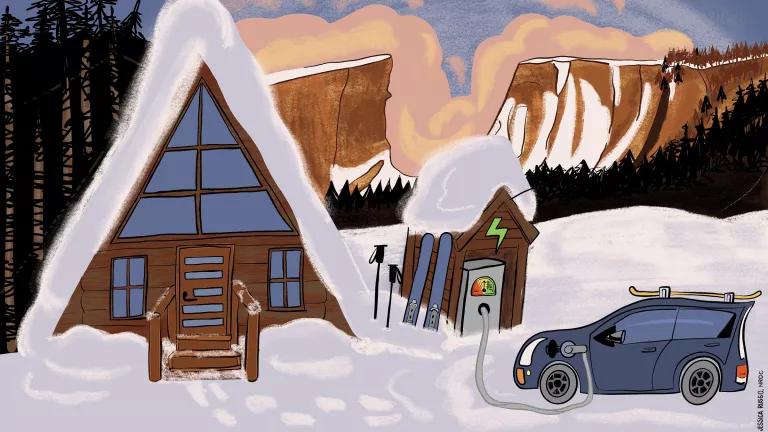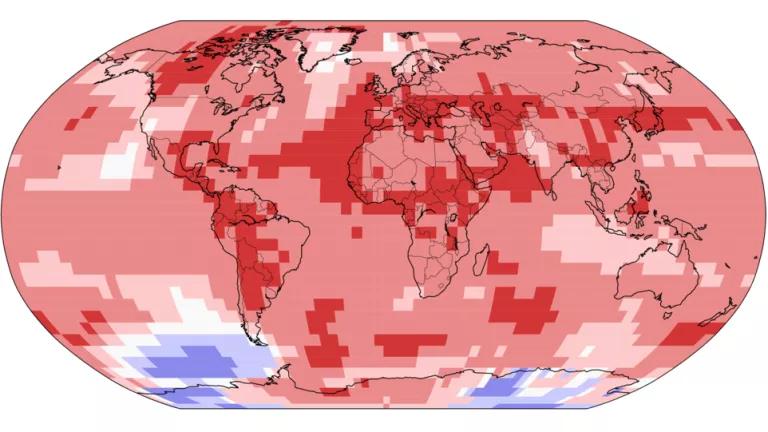
Latin American countries reiterated their commitment to climate action at COP25 and many have already signaled that they will update or enhance their NDCs in 2020. As we wait for these updates, below is a recap of some relevant actions related to energy and decarbonization that stakeholders from the region announced during the COP.This post is an excerpt of the Latin America Project's Latin America Green News weekly newsletter, a selection of weekly news highlights about environmental and energy issues in Latin America. You can subscribe here. A similar recap of Latin America nature-based solutions and environmental justice related updates from the COP is available here.
Regional commitment to clean energy
Chile, Colombia, Costa Rica, Dominican Republic, Ecuador, Guatemala, Haiti, Honduras, Paraguay and Peru officially declared their commitment to a collective regional objective of 70 percent of renewable energy by 2030. The target was originally announced in November in Peru and will increase renewable energy generation from the current level of 56 percent, with a focus on non-conventional renewable energies. OLADE, the Latin American Energy Organization, will coordinate the initiative and provide data and a platform for countries to develop a work plan to implement the target. (OLADE12/10/2019)
Role of private sector on renewable energy
To continue to boost renewable energy in the region the role of the private sector will be critical, among other things to share best practices and encourage supportive policy frameworks. To that end, twelve renewable energy associations from Argentina, Chile, Colombia, Ecuador, Mexico, Peru, Uruguay and Spain signed an agreement to work together to promote renewable energy as a climate change mitigation solution. As part of the Ibero-american Renewable Energy Alliance, the 12 associations will work to “establish the main lines of collaboration for shared objectives such as: the replacement of fossil fuels, both for electricity generation and for other applications; respectful, harmonious and constructive relations with communities in the areas where projects are developed; and support for competition, among others.” ACERA, the Chilean Renewable Energy Association, has assumed the General Coordination of the alliance, a position it will hold for one year, with the option of re-election for an additional consecutive period. (Revista Electricidad 12/10/2019)
Phasing out fossil fuel plants
Support for renewable energy must be matched with efforts to decarbonize countries’ energy sectors by phasing out fossil fuel plants. In a positive move, Chile’s Energy Minister, Juan Carlos Jobet, announced the country will speed up the shutdown of four coal plants representing nearly 700 MW. Under a new agreement with the government, AES Gener will close Ventanas 1 in 2020 instead of 2022, and Ventanas 2 in 2022 instead of 2024. To make these closures viable, Chile is accelerating regulatory changes and transmission investments. Meanwhile, Engie agreed to a 2024 shut down of its plants CTM 1 and CTM 2. These plants were originally scheduled to shut down in 2028 and 2030, respectively. Engie has signed a first of its kind emission reduction monetization agreement with IDB Invest that puts an economic value on avoided greenhouse gas emissions and will help support the financing of new renewable energy. Engie also announced the closure of the Ilo 21 coal plant in Peru. (Diario Financiero 12/09/19; América Economía 12/10/2019)
Roadmaps for decarbonization
A new roadmap for achieving 100 percent emission reductions by 2050 in Latin America reveals that completely cutting CO2 is both necessary to reach global climate commitments and economically feasible. According to the new report presented by the Inter-American Development Bank (IDB), decarbonization initiatives like preserving natural carbon sinks, improving energy efficiency, and reducing waste and carbon emissions from the construction and food sector could generate multiple economic opportunities for the region as well as consistently increase GDP per capita. (Panama On 12/06/2019)
In fact, decarbonization could save Latin America and the Caribbean more than a billion dollars per year, according to a study by the United Nations Environment Programme (UNEP). In addition to saving money, the new evidence reveals that achieving zero emissions from the energy sector and electrifying the transportation sector by 2050 could improve public health outcomes and save the region 1.1 billion tons of CO2. The transition requires an investment of approximately $800 billion USD by 2050, which according to the UNEP study, is less than the amount that would be needed to satisfy the region’s energy demand to current levels. (Noticias ONU 12/11/2019)

Honduras is one country that is embarking on the decarbonization route. The country is set to implement its 2020-2050 decarbonization plan to curb the country’s annual carbon emission of 21 million tons. Costa Rica, which formally presented its own decarbonization plan at the COP, and Euroclima+ will provide financial and technical support to aid the country’s transition to a green economy. This will help reduce the nine million tons of CO2 produced by the fossil fuel industry, as well as curtail its dependence on petroleum imports that cost the country over $1.4 billion USD per year. According to Marlon Escoto, the Delegate for Climate Change in Honduras, reducing emissions from the transportation sector will be a priority. This includes a proposal to replace around 1,800 buses in the capital, Tegucigalpa, with electric ones. Reforestation will also be a central tenet of the plan—forest fires generate 6 million tons of CO2 emissions in the Central American country—and will include a target of reaching one million hectares (~ 2.5 million acres) of forest by 2050. (Estrategias y Negocios 12/10/2019)
A key benefit from decarbonizing the region’s transportation sector will be reducing short-lived climate pollutants, also known as “super climate pollutants,” which contribute to climate change and air pollution, posing serious threats to public health. In an open letter, various civil society groups and environmental NGOs from Latin America and the world, including NRDC, signed a letter to urge leaders to set a limit on short-lived climate pollutants in their global climate commitments. Over 11,000 scientists from around the globe have argued that cutting short-lived climate pollutants like methane, black carbon (soot), and hydroflurocarbons (HFCs), could reduce the planet’s warming by over 50 percent in the next decades. (AIDA 12/10/2019)
This post was co-authored with Andrea Becerra and Gricelda Ramos.





